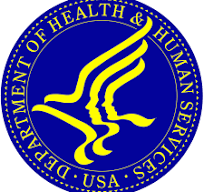If you’re reading this, you’ve no doubt heard the word on the street that Robert F. Kennedy Jr. will be appointed the Secretary of Health and Human Services if Donald Trump wins the presidency. HHS is a super-agency which includes CDC, CMS, FDA, HRSA, NIH and other agencies. The very agencies who oversee protecting public health and the most vulnerable persons in the country.
What would a Kennedy-run HHS look like? Given Kennedy’s longstanding skepticism of evidence-based health policy, his leadership of HHS would likely prioritize his personal beliefs over solid science.
Kennedy’s vocal stance on vaccines provides a glimpse into his priorities. For years, he’s argued that vaccines are neither safe nor effective, claiming, without evidence, that they’re tied to a laundry list of health issues, including autism, autoimmune disorders, infertility, and obesity. His assertions have been widely debunked by researchers and public health agencies, but Kennedy has doubled down, continuing to spread misinformation that contributes to vaccine hesitancy and compromises public health.
His leadership at HHS, including the numerous core health and health care agencies, would shift resources and policies away from promoting vaccines—an essential tool in fighting preventable diseases—and instead, focus on unsubstantiated hunches that will put lives at risk. In addition to his anti-vax positions, Kennedy has pushed other unproven therapies, including ivermectin, hydroxychloroquine, and chelation therapy – none of which are supported by scientific evidence for the uses he promotes. During the COVID-19 pandemic, Kennedy advocated for these treatments, despite a lack of credible data backing their effectiveness.
If appointed to HHS, his influence could result in funding for these non-evidence-based treatments and sidelining effective, science-backed interventions. Under Kennedy’s leadership, we might see the federal government actively endorsing and funding unproven therapies, wasting taxpayer dollars and eroding trust in the department.
Another alarming aspect of Kennedy’s approach is his disdain for agencies like the CDC and FDA, both essential parts of the HHS. He’s called for “slashing” their budgets and has even suggested that current leadership within these agencies should be investigated and potentially jailed, accusing them of engaging in conspiracies and misinformation.
This rhetoric is not only unfounded but is deeply damaging to public trust in institutions meant to safeguard health. Should Kennedy gain control of these agencies, it’s likely he would try to implement his agenda by weakening their funding and influence, leaving FDA and CDC ill-equipped to regulate food and drug safety, and provide reliable guidance.
Kennedy’s leadership would likely align with Project 2025, a right-wing policy blueprint that proposes drastic rollbacks of federal public health initiatives. This project, which Trump has vowed to implement if re-elected, calls for shrinking the federal government’s role in health policy, reducing the power of public health agencies, and limiting their ability to issue health recommendations.
The Dangers of Implementing Project 2025s’ Public Health Proposals – AZ Public Health Association
The HHS and the various subagencies (FDA, CMS, HRSA, NIH etc.) under Kennedy could very well fast-track these proposals, potentially dismantling key public health protections. For instance, Project 2025 advocates for removing the CDC’s authority to issue public health guidelines, a move that would be disastrous during health emergencies and diminish the role of science in policy decisions.
Kennedy’s approach to health policy is often rooted in personal beliefs rather than evidence, a dangerous quality for the head of agencies responsible for regulating food, drugs, public health guidance, and the efficient operation of Medicare and Medicaid.
Public health leaders are tasked with protecting and improving lives through science, not ideology. If Kennedy’s history is any indication, his appointment would mean prioritizing fringe theories over established science, appointing persons to lead CDC, CMS, FDA, HRSA and NIH that share his zeal for believing in things that aren’t evidence-based and weakening the agencies that Americans rely on to keep them safe.
At a time when public health faces multiple challenges, from pandemics to chronic disease, having an HHS Secretary who dismisses scientific consensus could be catastrophic. Health policy requires leaders who understand and respect evidence; Robert F. Kennedy Jr. has shown time and again that he does not.
Vote carefully my friend.

